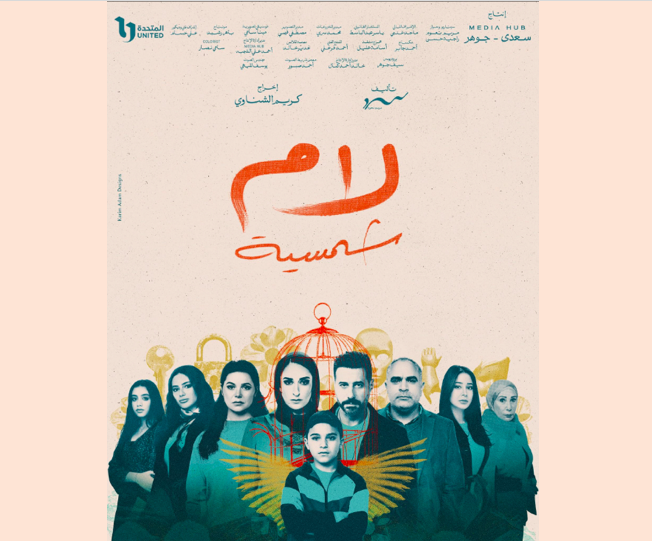
The groundbreaking Egyptian series Lam Shamseya is confronting the country's deep-rooted taboos around child sexual abuse. The show has sparked national dialogue, encouraged survivors to speak out, and led to a rise in hotline reports.
In living rooms across Egypt, a television drama has shattered the silence around child sexual abuse, forcing a national reckoning with a subject long buried in taboo.
The show, Lam Shamseya, follows school administrator Nelly, portrayed by leading actor Amina Khalil, as she confronts an unthinkable reality: her stepson has been abused by a trusted family friend.
In a country where discussions of sex and sexual violence are often muffled by social norms, the series has ignited rare open dialogue.
It has also led to a noticeable uptick in calls to Egypt's child protection hotline.
"We don't talk about these things in our culture," said Amira Abu Shady, a 43-year-old mother.
"After this show, I sat with my son and told him he can always tell me anything."
For Hend Adel, a 41-year-old mother of three, the show stirred deep unease.
"It made me question everything. Who do we trust with our children?"
Egyptian dramas, particularly during the peak Ramadan season, have often tackled thorny social issues like drug addiction, custody, and women's struggles in Egypt's patriarchal society.
But sexual abuse, particularly involving children, has largely remained off-limits due to the intense stigma associated with such accusations and the social pressure to protect what is often referred to as family "honor."
"This is the first time viewers have seen these experiences reflected on the screen with such honesty and boldness," said veteran art critic Magda Khairallah.
21,000 calls for help
Last year, Egypt's National Council for Childhood and Motherhood recorded over 21,000 reports of children at risk, including cases of sexual abuse, physical violence, and neglect.
"The actual number is far higher," Sabry Osman, head of the council's child helpline, told AFP.
Many families fear the stigma that comes with speaking out, he said. "So, they stay silent."
That culture of silence is precisely what drew 12-year-old Ali al-Beialy to take on the role of Youssef, the young boy at the heart of the story.
"Mr Karim told me I would be a voice for the voiceless," he said in an interview with Egyptian TV channel On TV last month, referring to series director Karim El-Shenawy.
The action in the show, now streaming across the region, unfolds after Nelly catches family friend Wissam, played by Mohamed Shahin, in a troubling embrace with Youssef.
As Nelly seeks the truth, she has to push through the denial, fear, and resistance even from those closest to her who are unwilling to confront the uncomfortable truth.
Youssef, traumatized and confused, slowly begins to understand what has happened to him.
"People always deny that it's most often relatives who commit this abuse; they don't want to see that it's actually within the child's inner circle," screenwriter Mariam Naoum said on a recent talk show.
Naoum insisted the series would air on national television to reach the widest possible audience.
"I wanted as many Egyptians and Arabs to see this," she said in a Facebook livestream.
According to UNICEF Egypt child protection specialist Salma ElFawal, most abuse happens "at home, schools and in cyberspace", and stigma often prevents families from educating their children or seeking help.
Hesitation and fear
The UN children's agency reported a direct impact from the series airing, noting a rise in calls to national child protection services during and after the broadcast.
Survivors have also increasingly shared their stories online, ElFawal said.
This week, a real-life case caught nationwide attention as a 79-year-old school staffer was sentenced to life in prison for sexually assaulting a five-year-old boy — a rare moment of accountability in such cases.
Though the show ends with Youssef regaining his voice and his abuser facing justice, the story's resolution is more hopeful than reality often allows.
In Lam Shamseya, characters have access to legal and emotional support, a luxury many Egyptians, particularly in marginalized communities, do not share.
Though Egyptian law carries severe penalties for child abuse, including life imprisonment for those in positions of authority, legal experts say many cases fail to reach court.
Egypt's many street children, in particular, are among the most vulnerable, often falling through the cracks of the justice system.
Even within more privileged households, few cases make it to court.
"For a case to hold up, it requires immediate action from parents," said Hala Abdel Kader, a lawyer and head of the Egyptian Foundation for Family Development.
The abuse must be recent and the child sometimes needs to undergo a forensic medical examination, according to Abdel Kader.
"Too often, hesitation and fear get in the way," she told AFP.
By Lobna MONIEB / AFP



Comments